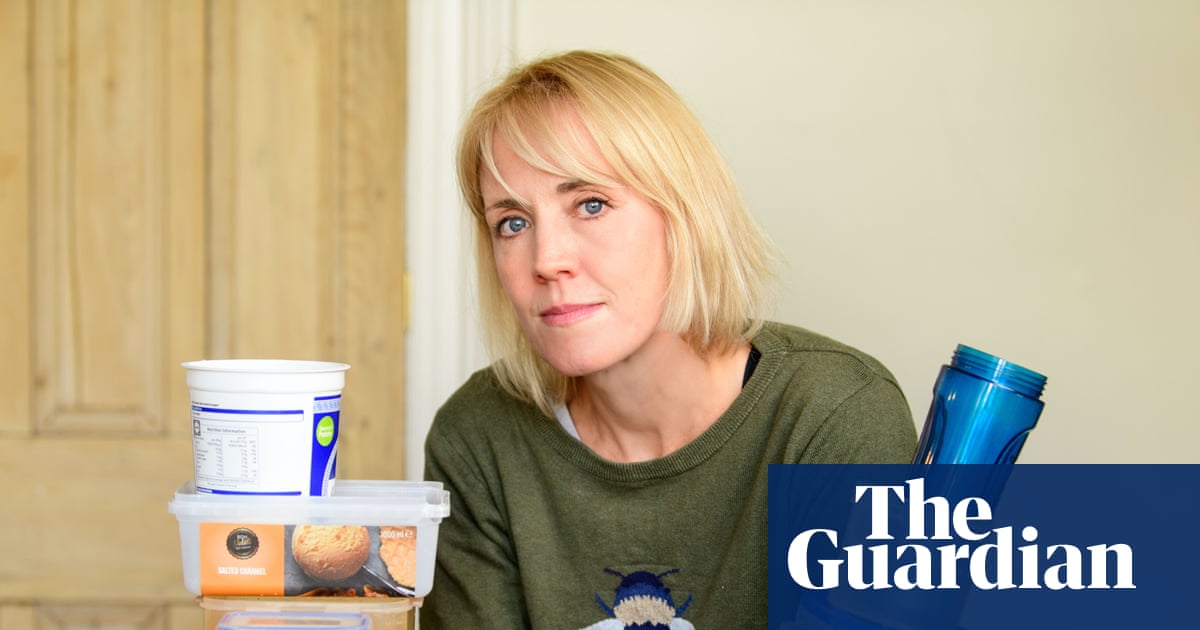#gut-microbiome
#gut-microbiome
[ follow ]
#nutrition #fiber #mental-health #depression #resistant-starch #public-health #alzheimers-disease #probiotics
Wellness
fromBusiness Insider
2 days agoA doctor who studies metabolism said new research convinced him to make 3 changes to his routine
Gradual dietary and lifestyle changes—more diverse whole foods and fermented foods, strength training, better sleep, and reduced stress—support metabolic health and fat loss.
Medicine
fromwww.theguardian.com
2 weeks agoGut check: are at-home microbiome tests a way to hack your health' or simply a waste? | Antiviral
At-home gut microbiome tests can detect microbial markers but often lack consistent interpretation, limiting usefulness for most people unless clinically ordered and properly interpreted.
fromNature
3 weeks agoMicrobiota-induced T cell plasticity enables immune-mediated tumour control - Nature
Although specific bacterial taxa have been associated with favourable clinical responses to immune checkpoint blockade (ICB) in cancer patients12,13,18,19,20,21,22, the mechanisms by which the intestinal microbiota influences anti-tumour immune responses remain poorly defined. Products of the microbiota, including metabolites23,24,25 and innate receptor ligands26, may reprogramme myeloid cells27, lowering the activation threshold for antigen presentation and thereby facilitating priming and activation of tumour-reactive T cells.
Cancer
fromBusiness Insider
2 weeks agoA busy dietitian shares what she eats for good gut health
Rachel Swanson, a registered dietitian at LifeSpan Medicine and author of "Trying!: A Science-Backed Plan to Optimize Your Fertility," splits her time between New York City and Miami, spending about half the year in each. She also takes small-group workout classes three times a week, focusing on strength training. She says eating enough nutrients, especially protein for muscle-building, is crucial for her. She generally aims for around 0.7 grams of protein per pound of body weight, the protein intake usually recommended for physically active people.
Food & drink
fromScienceDaily
1 month agoHarvard gut discovery could change how we treat obesity and diabetes
A research project supported by FAPESP and carried out at Harvard University in the United States has identified a set of metabolites that move from the intestine to the liver and then on to the heart, which distributes them throughout the body. These circulating compounds appear to influence how metabolic pathways function within the liver and how sensitive the body is to insulin. The findings point to potential new strategies for treating obesity and type 2 diabetes.
Medicine
fromMetro Silicon Valley | Silicon Valley's Leading Weekly
2 months agoRob Brezsny's Free Will Astrology for November 20-26, 2025
Not petulant tantrums, not the ego's defensive rage, but the fierce love that refuses to tolerate injustice. You will be wise to draw on the righteous "No!" that draws boundaries and defends the vulnerable. I hope you will call on protective fury on behalf of those who need help. Here's a reminder of what I'm sure you know: Calmness in the face of cruelty isn't enlightenment but complicity. Your anger, when it safeguards and serves love rather than destroys, is a spiritual practice.
Mindfulness
Health
fromBusiness Insider
2 months agoGut health is the secret to glowing skin, says a pharmacist with a Ph.D in skincare. Follow her 3 simple diet tips.
Prioritize gut health with a high-fiber, antioxidant-rich diet to reduce inflammation and improve skin health; target about 28–30 grams of fiber daily.
fromBuzzFeed
2 months agoThe Banana Ripeness Secret No One Tells You That Could Transform Your Health Goals
As a banana ripens, its nutritional content - the amount of sugar, starch, and vitamins - changes. Meaning, if you need more sugar before a workout, or less sugar because of diabetes, you may want to eat your banana at a certain ripeness level. Ahead, registered dietitians share the various ripeness levels, what a banana looks like at each stage, and the health conditions or goals that are best addressed at each level of ripeness.
Food & drink
fromPsychology Today
3 months agoCan Eating Too Much Sugar Lead to Depression?
For years, researchers have suspected that excess sugar in food and drinks can cause depression. One reason it was suspected was because people with diabetes have an increased incidence of depression that is beyond what would be expected only from the challenges of dealing with a chronic illness. Having diabetes is associated with two to three times the rate of depression compared to the general population.
Mental health
fromInsideHook
3 months ago7 Strategies for Improving Your "Mind-Microbiome Connection"
But for how casually and frequently we reference the gut, few of us know exactly how it works, why it sometimes doesn't or much about its intimate relationship with the brain. Even medical experts have only recently come to appreciate the microbiome's connection to mood, anxiety and neurodegenerative disease. That's because the microbiome is a complex community comprised of trillions of microbes - and every single gut is unique to the specific person. It's an ecosystem as mysterious to us as the deep ocean, or outer space or the brain...which it evidently shares a "communication highway" with.
Mental health
fromwww.twincities.com
3 months agoFDA restricts use of kids' fluoride supplements citing emerging health risks
The FDA released a new scientific analysis Friday, concluding that fluoride supplements have limited benefits for children's teeth and may be linked to emerging safety concerns, including gut issues, weight gain and cognition. For the same reason fluoride may work to kill bacteria on teeth, it may also alter the gut microbiome, which may have broader health implications, the agency said in a statement.
Public health
fromwww.nature.com
4 months agoHow the World's Oldest Woman Lived to 117
During her final year she died on 19 August 2024 she was verified as the oldest living person, a feat that drew the attention of researchers who explore the biology of ageing. We wanted to learn from her particular case to benefit other people, says Manel Esteller, a physician specializing in genetics at the University of Barcelona in Spain. At the time, Branyas was living in the small town of Olot, in the Catalonia region of Spain, where she enjoyed reading books, playing with dogs
Medicine
fromwww.theguardian.com
4 months agoMore kissing, less kimchi: seven surprising ways to boost your gut health
While many of us assume that diet is the only way to feed the trillions of microorganisms (including bacteria, fungi and viruses) that make up the microbiome, there are myriad daily habits that can help nurture this important part of the body. Diet often takes centre stage in discussions about the gut microbiome, and rightly so it plays a major role, says Dr Emily Leeming, a scientist, dietitian and research fellow at King's College London, and author of Genius Gut.
Wellness
Alternative medicine
fromNatural Health News
8 months agoGut Microbiome Pattern Helps Predict Heart Attack Risk in Heart Disease Patients
The gut microbiome is a critical predictor of heart attack risk.
An intestinal microbiota-based risk score can identify high-risk CHD patients before adverse events occur.
OMG science
fromNature
9 months agoDaily briefing: Fibromyalgia eases after doses of gut microbes
Gut microbes may alleviate fibromyalgia symptoms, according to a small trial.
Less than half of Brazilian biomedical studies can be replicated, signaling a reproducibility crisis.
A new color perception experiment reveals unique human sensory potential.
[ Load more ]







